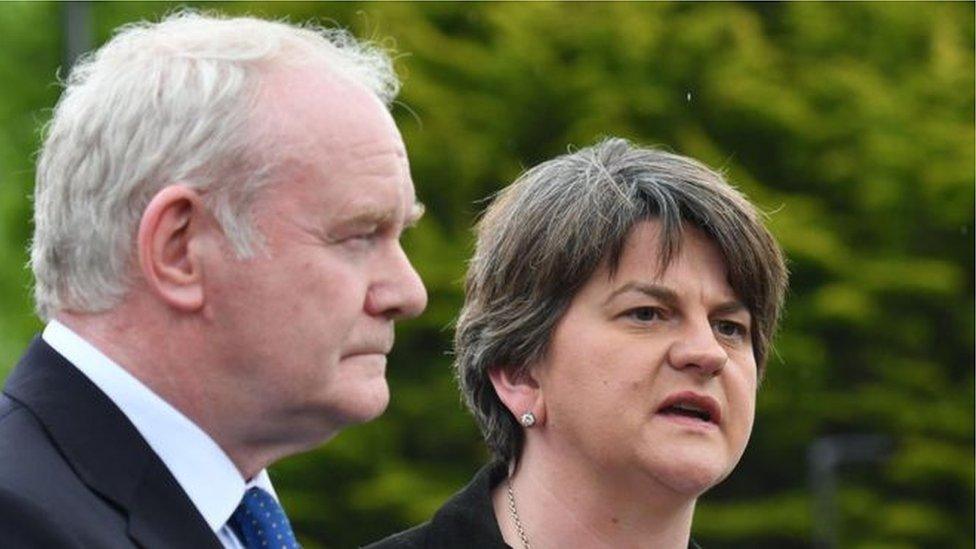Brexit: Máirtín Ó Muilleoir warns of job losses if EU peace funds stop
- Published
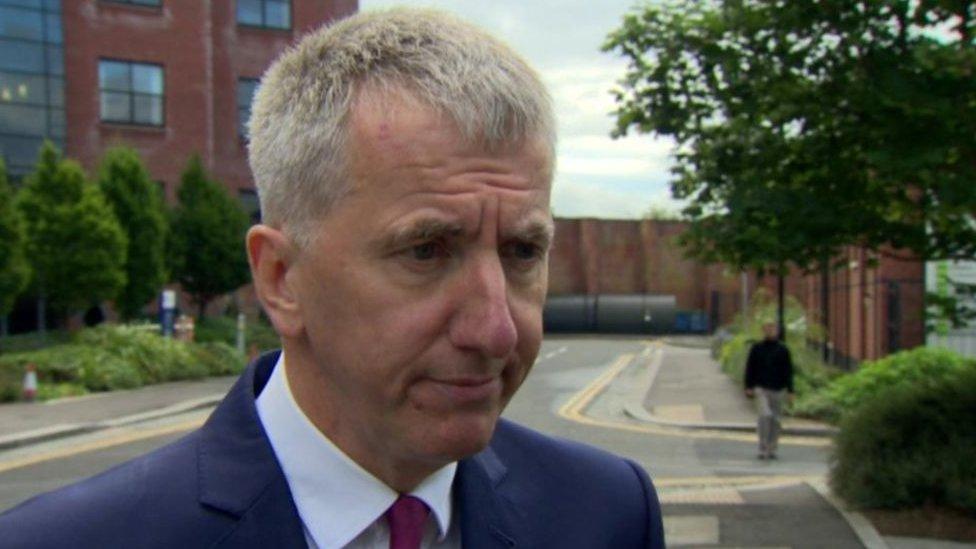
Hundreds of jobs will go if the Treasury does not underwrite European peace money, Northern Ireland's finance minister has warned.
Máirtín Ó Muilleoir said about £300m could be lost with "hundreds if not thousands of job losses".
It would be a "real body blow to the economy", he added.
The Treasury says EU projects signed before the chancellor's Autumn Statement will be fully funded.
Politicians in London have agreed that EU schemes in Northern Ireland signed off before November of this year will get guaranteed funding even if they continue after the UK leaves the EU.
That commitment has been welcomed by First Minster Arlene Foster.
"We had a letter from the Treasury a couple of weeks ago. I think it was a very helpful letter," the DUP leader said.
"I think we have been given clarity in relation to European funding."
Northern Ireland has received tens of millions of pounds in the last 20 years - money designed to help divided communities and enhance the peace process.
Since 1995, various peace funds have delivered £1.5bn and a cross-border fund has provided £820m.
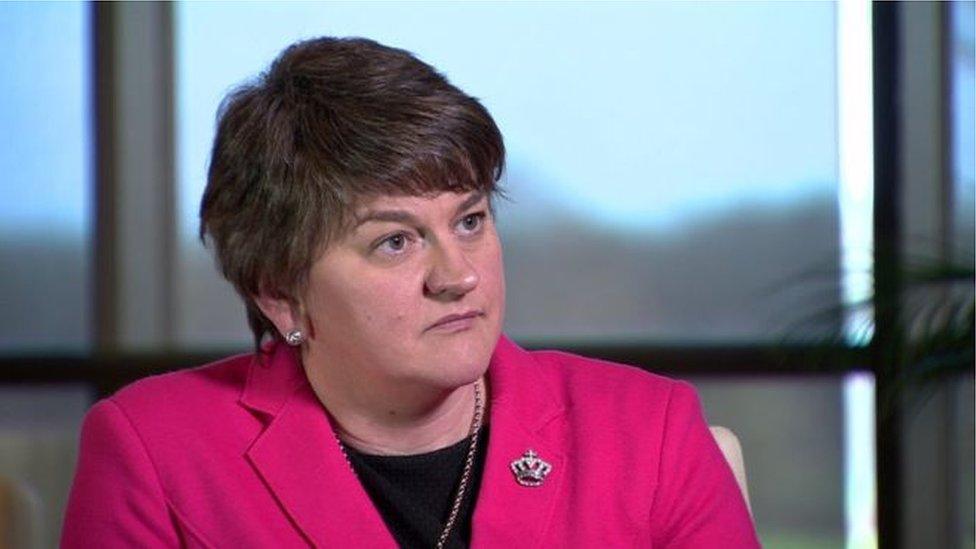
First Minister Arlene Foster said she believed the Treasury had given clarity over EU funding
Between now and 2020, about £500m in peace and cross-border funding is due to be handed out.
While the UK government has guaranteed to match projects agreed by December, Mr Ó Muilleoir has reservations.
He is worried that any shortfall could put jobs at risk.
"It means hundreds if not thousands of job losses," he said. "It weakens our case. It would be a real body blow to the economy.
"It is my number one priority to fight for this £500m."
Across Northern Ireland, EU money has funded a series of high-profile projects including the Peace Bridge in Londonderry and the Gobbins Cliff walk in County Antrim.
The Skainos centre in east Belfast, which provides a range of community services including a crèche, hostel and social housing, was partly funded by EU money.
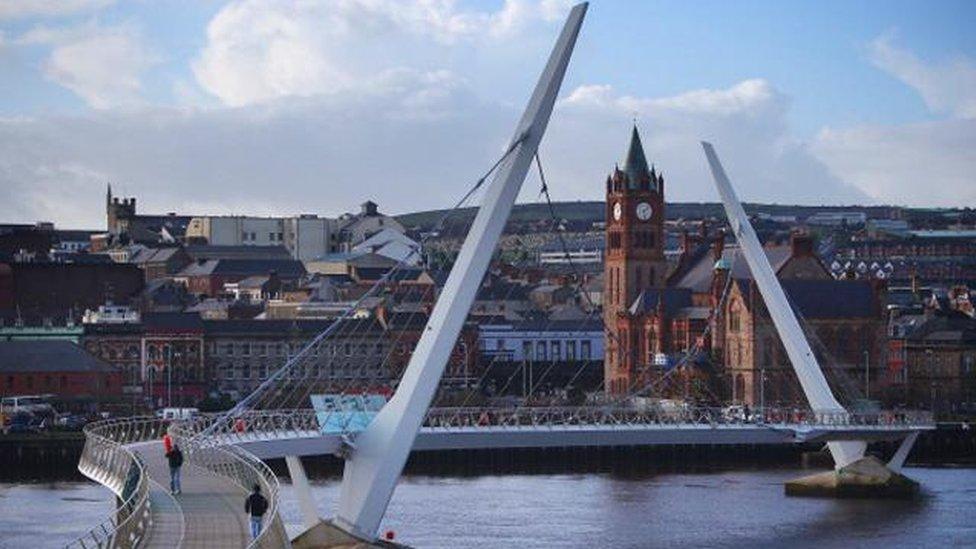
The Peace Bridge in Londonderry is one of many projects to be part-funded by EU money
Gary Robb from Skainos said the EU money was critical.
The investment was "vital for completion" and without it the centre "may not have happened at all", he said.
The charity Wave, a group that helps victims of the Troubles, also received £4m of EU money.
Chief Executive Sandra Peake said she was worried the charity's youth services would end if the funding stopped and nothing was "put in place" to replace it.
Economist Esmond Birnie, from Price Waterhouse Coopers, said community groups and politicians need to change their mindset now that the UK has voted to leave the EU.
He told the BBC that those schemes in Northern Ireland previously funded by the EU should be examined thoroughly to see if "we need to be pursuing those purposes".
He said what was needed now was "a totally new approach" to funding.
Peace and cross-border funding was established back in the 1990s as Northern Ireland ushered in new times.
Now, fresh thinking is needed as people here get ready for life after Brexit.
- Published13 August 2016

- Published11 August 2016
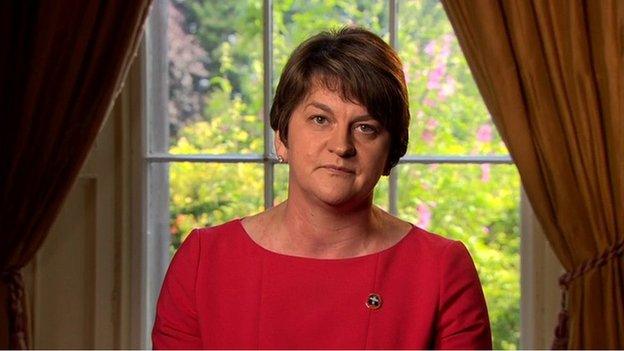
- Published10 August 2016
